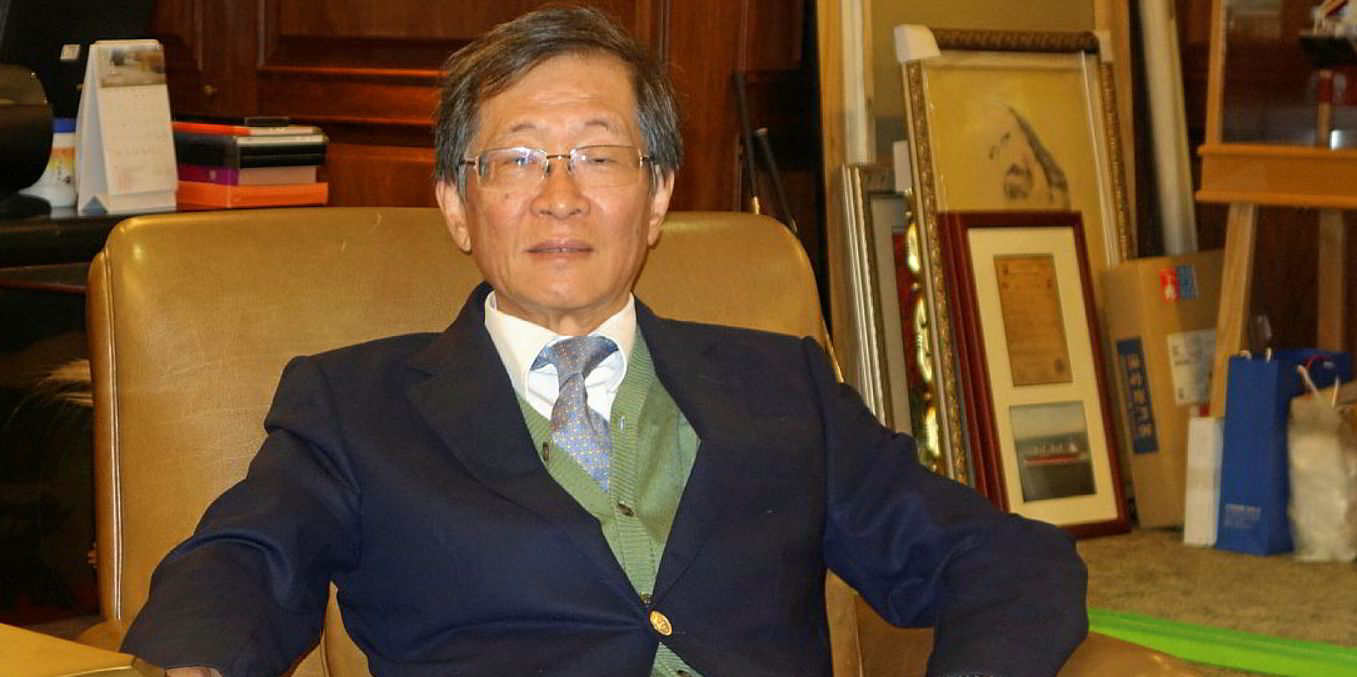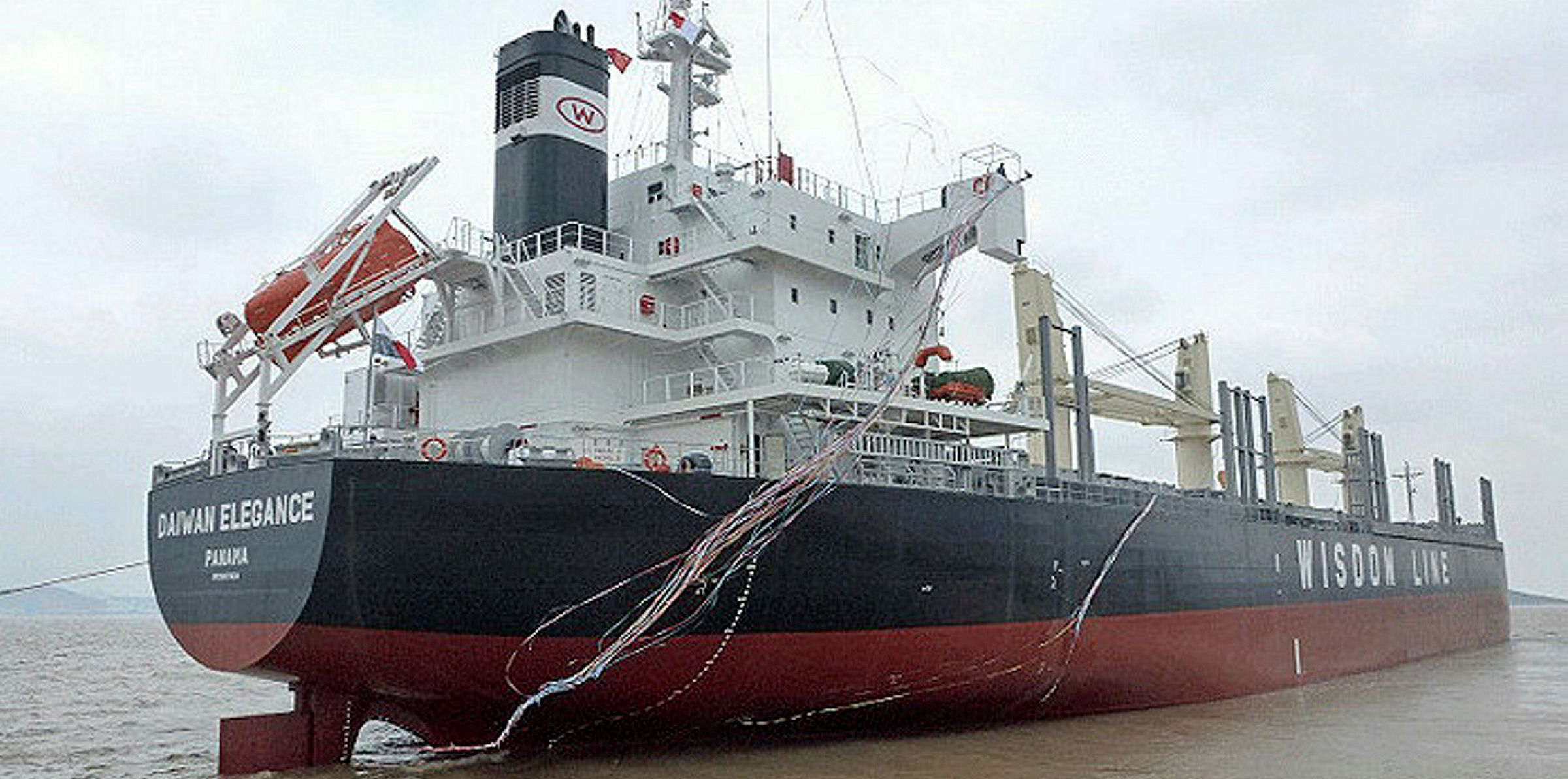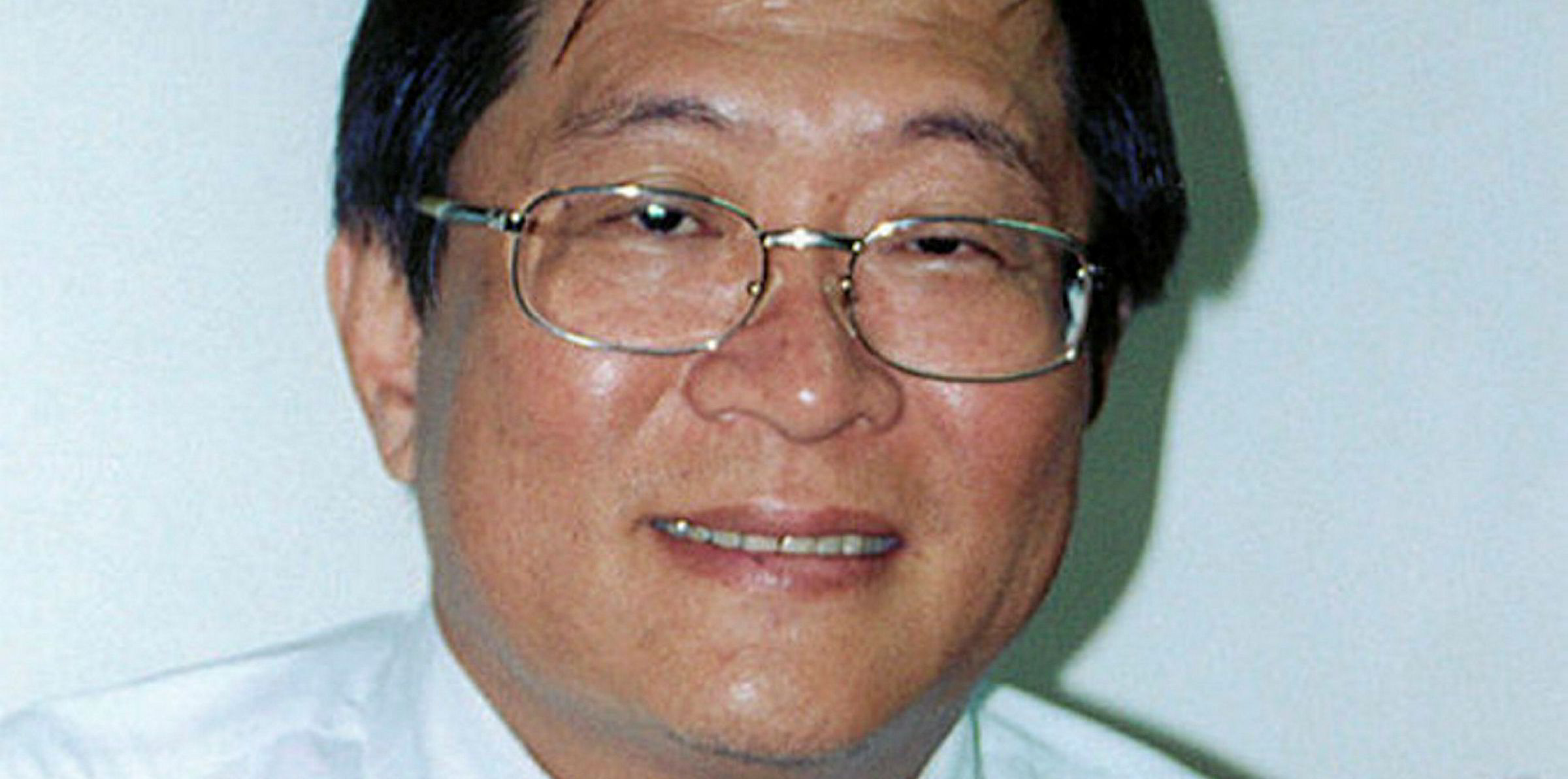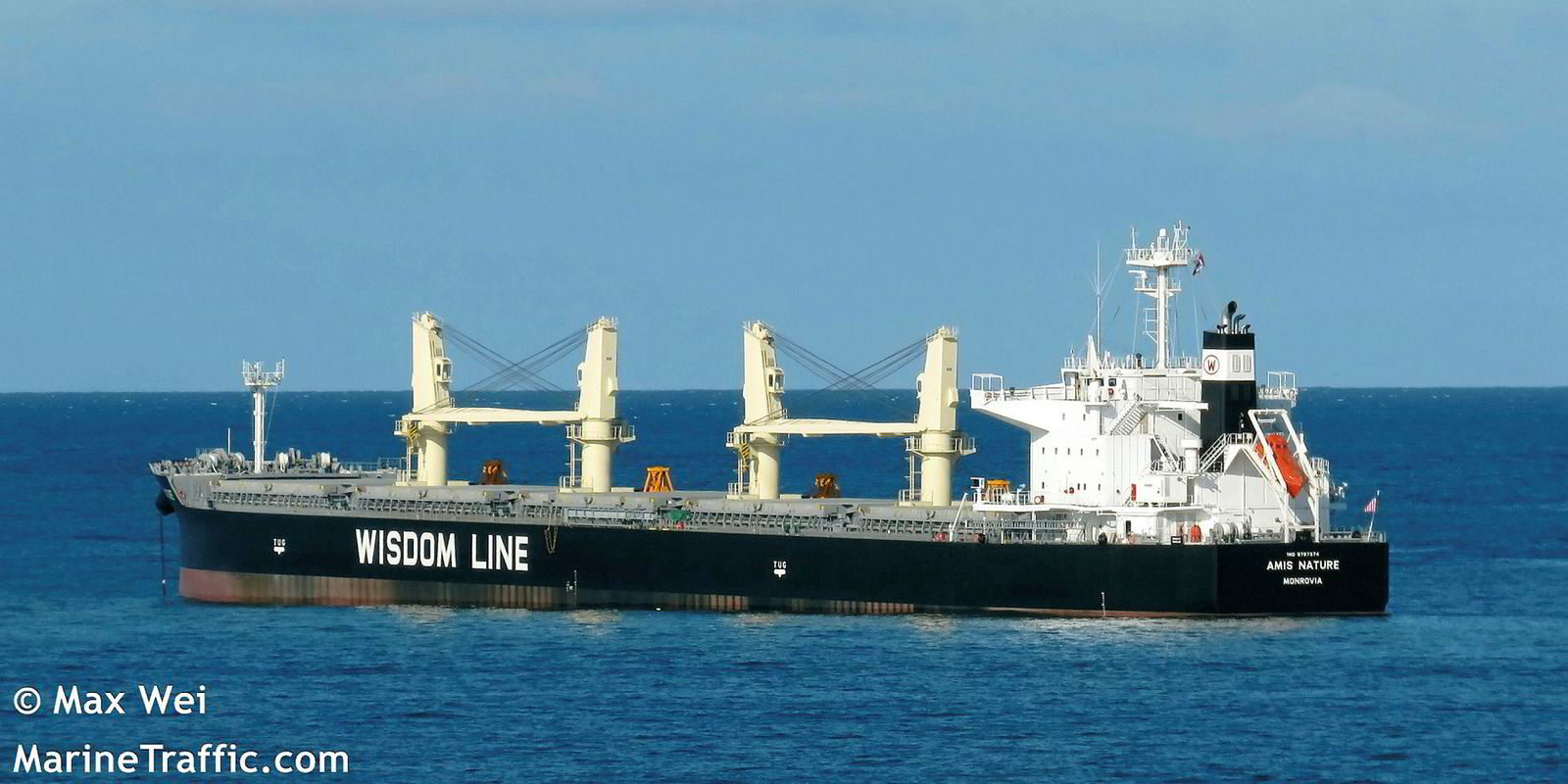At the age of 50, James Lan’s life took an unexpected turn. After a successful career as a shipping executive, he was planning early retirement to help care for his newborn son. However, three days after the birth, Lan received a call from a Japanese friend about a potential ship acquisition.
“That was a two-year-old, 6,600-dwt bulk carrier named Global Wisdom. I saw a chance there, because I had some free cash and was able to get some bank loans,” Lan tells TW+.
He reckoned the acquisition could make financial sense, as the ship had a time charter attached. “I thought running it would be easy for a stay-at-home father, since it was just a ship.”
That was 1999. Fast-forward to today and Taipei-based Wisdom Marine Lines has grown to become the world’s third-largest bulker owner by number of ships. VesselsValue estimates its fleet is worth about $2bn.
“My life has not exactly progressed as I planned,” Lan reflects.
Lan comes from one of the most renowned shipping and political families of Penghu, an outlying archipelago of Taiwan. Tingkui Lan, his late father, was the speaker of the local council between 1964 and 1972. Seeking to enhance Penghu’s transport links while serving in public office, the elder Lan also ran some domestic shipping businesses.
When his brother Junde Lan founded Shih Wei Navigation in 1985, James joined the shortsea bulker player as president. After eight years, he took the same position at First Steamship, also a bulker owner but with a deepsea focus.
“I have a lot of friends in shipping,” Lan says. “Shipping is the most amazing business. Things in this industry are always changing, and no one can really control the market. We have to study the market every day and try to make the right call.”
Lan appears to have made shrewd decisions. Since going public on the Taiwan Stock Exchange in 2010, Wisdom Marine has never made a yearly loss under his chairmanship. Between 2011 and 2018, when average spot bulker earnings struggled to stay above operating expenses at times, the company made net profits totalling $434m.
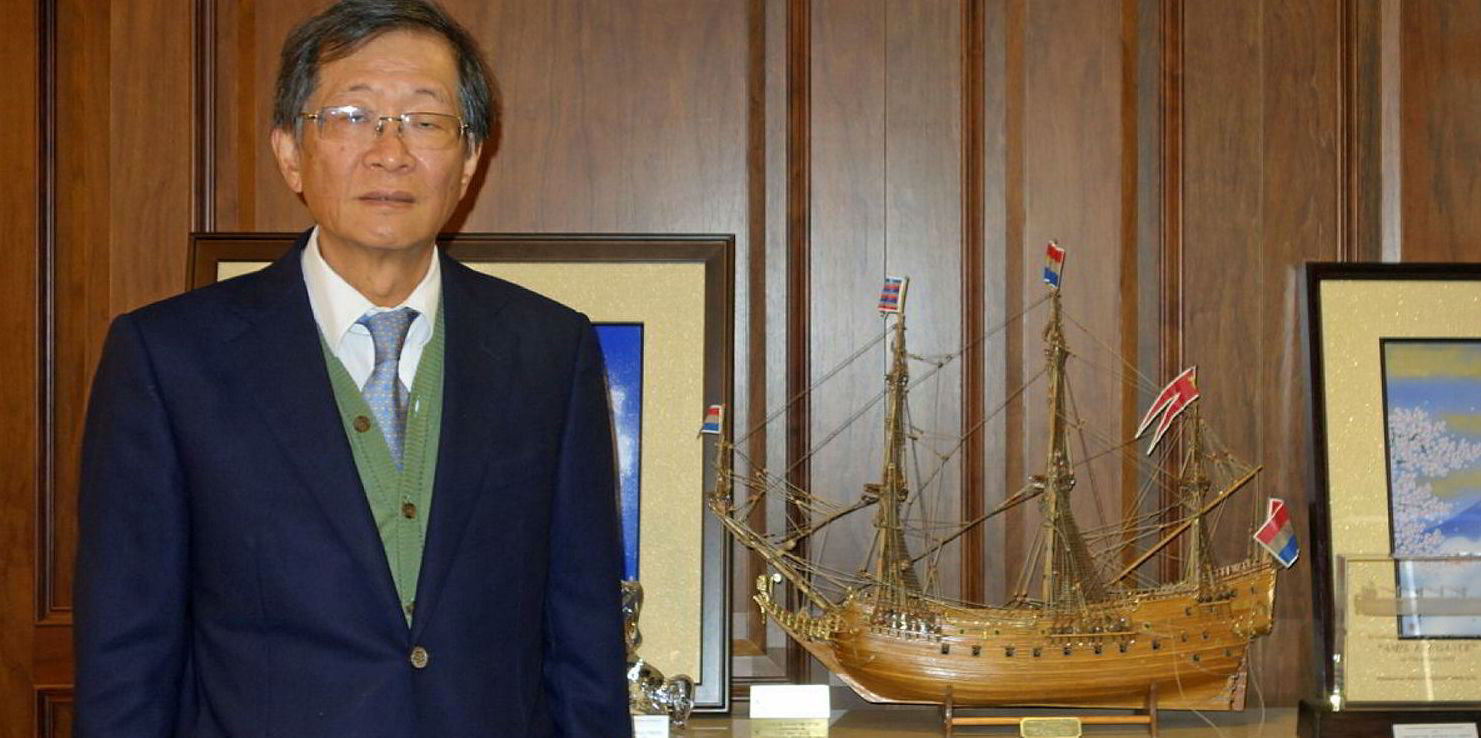
Wisdom Marine, according to Lan, is able to generate stable cash flows from time charters with counterparties that have strong credit profiles.
“Aside from the period between 2006 and 2008, in my experience the bulker market has never been good ... [but] our charterers are some of the first-class players in the world,” he says. “Admittedly it would not be easy to achieve high rates with them, but we can manage to get stable income and profitability.”
The model is not unique — some conservative Greek and Japanese shipowners adopt a similar approach. But Wisdom Marine is using it well, partly due to its ability to mingle with Japan Inc.
Most of its vessels are constructed at Japanese yards, occasionally on low-interest Japanese financing. The Big Three operators — NYK Line, MOL and K Line — regularly fix long-term time charters with Wisdom Marine, which has an office with more than 10 employees in Tokyo.
The company’s charter strategy can be flexible. It generally prefers period charters ranging from one to 15 years, but it can also go for short-term charters that last for several months when it sees favourable market conditions. It keeps 20%-25% of its fleet trading in spot markets.
“We need to get close to the [spot] market to get the best idea on where the period rate level is,” Lan says. “Should the charterers redeliver the vessels or try to renegotiate, we would be in a good bargaining position, as we have the ability to do spot trading ourselves.
“That way, the charterers would not dare to drive the rates down too aggressively or set unfavourable terms to us.”
Wisdom Marine has 130 vessels in operation and 22 on order, up from about 50 ships in 2010, but despite the rapid expansion, Lan maintains his company is growing within its means. “Once we have more than 100 ships, we can achieve economies of scale. We have been able to get better rates for shiprepairs and marine insurance.”
Almost all of the ships are handysize, supramax, ultramax and kamsarmax vessels. With similar ship types, Wisdom Marine has also been able to streamline its operations. “We are able to manage more ships per employee.”
Unlike other listed bulker owners, the company has steered away from capesizes. Only three vessels in its fleet are in this class, and they are all fixed to NYK on 15-year charters.
“We are not well positioned to enjoy the cape market,” Lan acknowledges. “We are not major miners, traders or steel mills [which own cargoes]. We are like a petite lady. We would be exposed to high market volatility and get killed when negotiating for rates.”
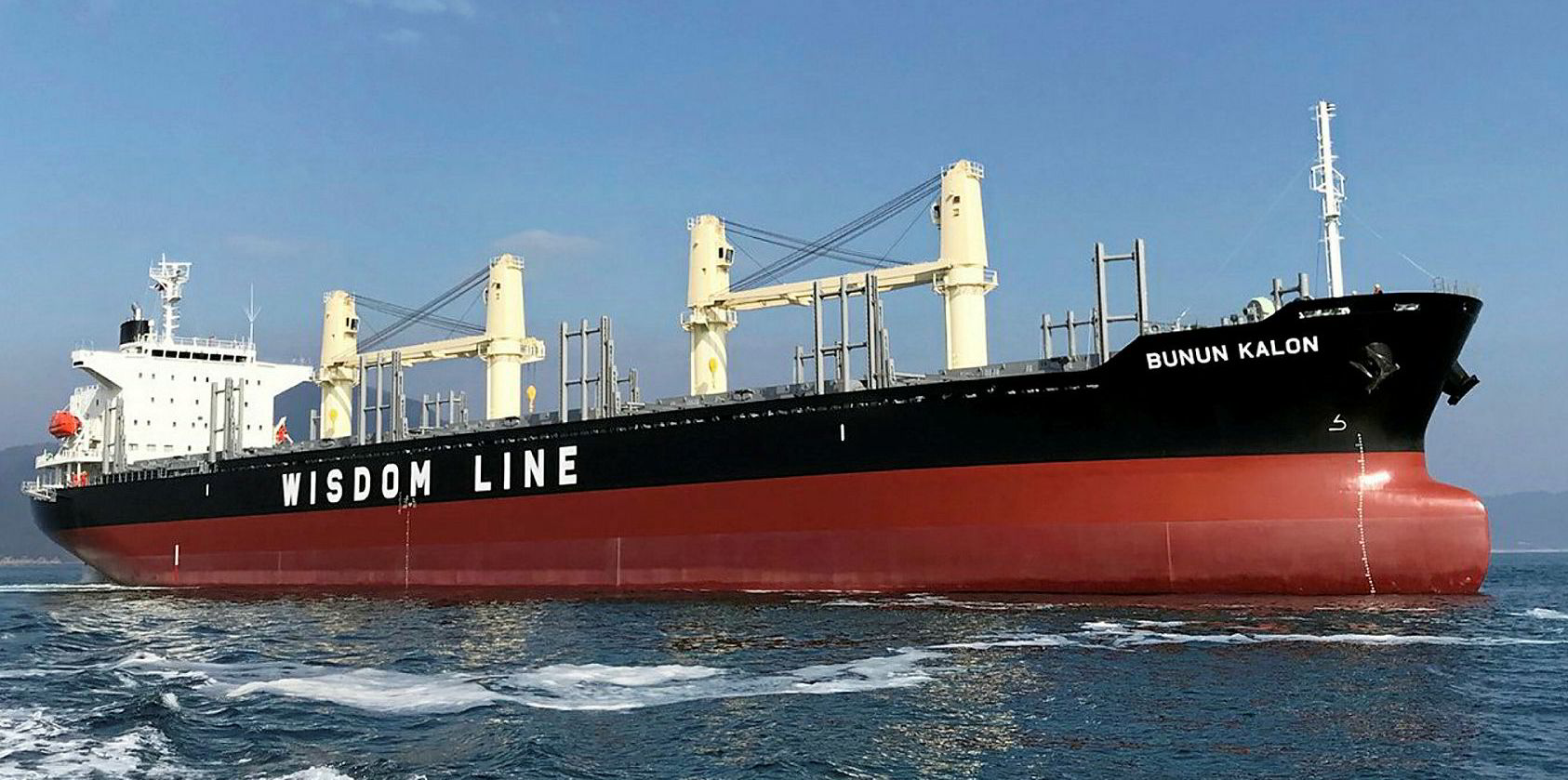
Wisdom Marine has stated its optimal fleet size to be between 125 and 130 vessels. It would need to boost staff numbers to sustain a larger fleet, and Lan admits that would not be easy.
“We probably will dispose of 30 to 40 ships,” he says. This will be done within four or five years. Those on the sales block will be non-eco ships aged eight years or more, given that the IMO 2020 rules have put vessels with high fuel consumption at a disadvantage.
Wisdom Marine has installed scrubbers on three of its ultramax newbuildings due for delivery between late 2019 and early 2020. Further installations are likely if the price spread between high- and low-sulphur fuels remains wide.
“Those investments are very welcomed by the period charterers [of the ultramaxes], who are saving lots of fuel costs,” Lan says.
Meanwhile, Wisdom Marine has been gaining a greater foothold in Europe, where many of its clients, such as Glencore, are based. Having issued Global Depositary Receipts in London in 2013, the company plans to deploy two staffers to a new office in Rotterdam in February.
“The secondary listing was successful, as we have become more well known in Europe ... some European companies are therefore more comfortable in doing business with us,” Lan says.
He suggests that Wisdom Marine could one day seek a listing in New York, the largest market for shipping stocks, despite tough regulatory requirements.
“It is the true market for shipping. There are many funds there. As long as our earnings per share are good and we are willing to pay dividends, our share price has a chance of increasing much more.”
Already beyond the usual retirement age in Taiwan, Lan has one daughter and three sons. Would he want them to carry on the shipping dynasty?
“They will have to be interested in the business. Wisdom Marine is already run by a team of professional managers and we are responsible for the shareholders,” he replies.
“In the past, one may just want to pass the baton to his children no matter what. But now you would not be able to meet the competition by doing that.”
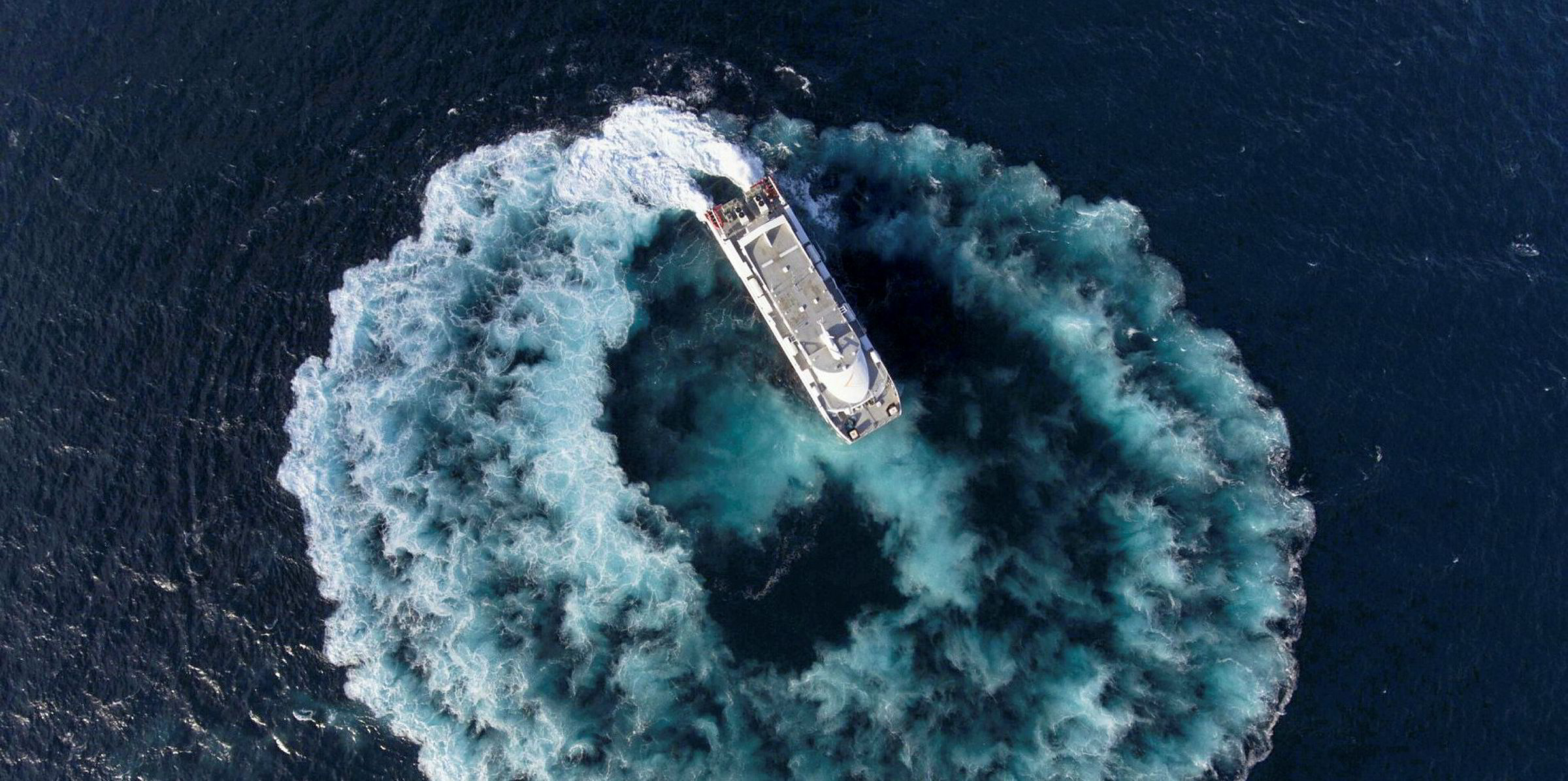
Making the right connections
In addition to Wisdom Marine, James Lan owns the Pescadores ferry and hotel businesses. Portuguese navigators named the Penghu archipelago Pescadores in the 16th century.
Last year, Brave Line, which runs the ferry business, began to operate two high-speed catamarans, each with a capacity of 552 passengers. The Rikulau and Blue Magpie (both built 2019) sail between Budai in western Taiwan and Penghu in spring and summer, but they have to operate in eastern Taiwan during autumn and winter due to seasonal winds.
Lan concedes that the ventures are more about promoting the tourism of his hometown, to which he still returns twice a month. Local media last year reported that Pescadores Resort, in Penghu’s main city of Magong, has been running at a loss for a decade.
Brave Line paid AUD 44m ($35m) for the two ferries built by Austal. Lan is happy with their utilisation rate: “They broke even in the first year, and I expect them to make money this year.”
But he also admits: “I can invest in two handysize bulkers with the money I invested in one of the ferries.”
Lan served two terms as a councillor for Penghu while holding the role of president of Shih Wei Navigation, whose head office is in Taipei. A brother of his, Chun-I Lan, was the council’s deputy speaker earlier this decade. Kaiyuan, Chun-I’s son, was elected a councillor in 2018.
However, James Lan is not that interested in politics himself. “I had to respond to the requests from my constituents, and not all of them are reasonable,” he says.
“And I had to travel between [mainland] Taiwan and Penghu very often at that time. I didn’t think that was sufficiently professional, so eventually I quit.”
